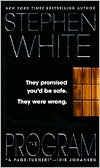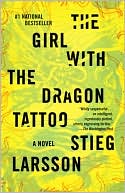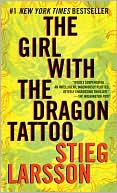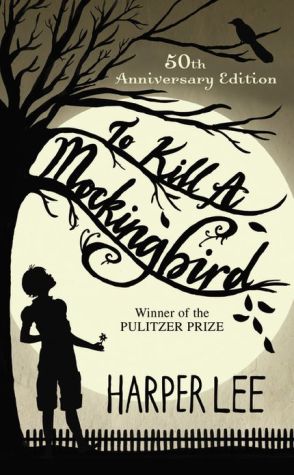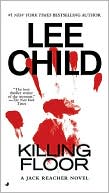The Program
When New Orleans District Attorney Kirsten Lord and her nine-year-old daughter are imperiled by a chillingly believeable death threat, Lord has no other choice but to accept the Witness Portection Program's offer to hide them in Boulder, Colorado. There, they meet program beteran Carl Luppo, a solitary mob hit man who is tormented by his former life and has nothing but time for regret. Sensing that Lord and her daughter's safety has been compromised, Luppo takes on the role of sentinel, fully...
Search in google:
When New Orleans District Attorney Kirsten Lord and her nine-year-old daughter are imperiled by a chillingly believeable death threat, Lord has no other choice but to accept the Witness Portection Program's offer to hide them in Boulder, Colorado. There, they meet program beteran Carl Luppo, a solitary mob hit man who is tormented by his former life and has nothing but time for regret. Sensing that Lord and her daughter's safety has been compromised, Luppo takes on the role of sentinel, fully realizing this might be his last shot at redemption. While Lord suspects that Luppo's warnings about the program's dark side are for her own protection and that she should believe the former assasssin's instincts, the only person she can really trust is nine years old.Publishers WeeklyOnce it recovers from a wobbly beginning, this ninth thriller in the bestselling series featuring Boulder, Colo., clinical psychologist Alan Gregory sprints competently along. Peyton Francis, aka Kirsten Lord, was once a New Orleans district attorney. Now she and her nine-year-old daughter are enrolled in the witness protection program, in hiding from Peyton's husband's assassin, who was most likely hired by a Colombian drug lord Peyton put away for life. Given a new ID and moved to Boulder, Peyton is befriended by another witness protection participant, a former mob hitman who, like herself, is referred by the Feds to Dr. Gregory for counseling. Plagued by doubts about the federal marshal entrusted with her safety and tortured by second thoughts about the impending execution of a black man she may have mistakenly sent to death row in Florida, Peyton races against time to stay the Florida execution, and is forced to go into hiding from the very witness protection forces assigned to protect her. The usually sure-handed White is guilty of some artless writing at the novel's start, creating a veritable obstacle course of meandering points of view, including an obscure long-running metaphoric thread linking repressed memories to images of a pod of whales. However, once the narrative drive settles mainly into Peyton's first-person voice, the story comes handily together. Featuring an interesting cast, including a young Texas schoolmarm turned professional hit person, a sinister cabal of federal marshals with hidden agendas and an entrepreneurial assassination broker in Atlanta, the narrative drives to an edge-of-your-seat denouement. Author tour. (Apr.) Forecast: This is not White's best effort, but fans of the series will check in to catch up on Alan Gregory's adventures his wife is pregnant with their first child in this installment. Copyright 2001 Cahners Business Information.
Chapter One\ \ ALMOST FAT TUESDAY\ "Remember this. Every precious thing I lose, you will lose two."\ The man was a good target.\ Tall, six-five. Wavy blond hair that shined almost red in the filtered February sunlight. Ivory skin that refused to tan. Green eyes that danced to the beat of every melody that radiated from every tavern on every street corner in the always-tawdry Quarter. Even during a crowded lunch hour in the most congested part of New Orleans, you could spot him a block away, his head bobbing above the masses. On the eve of Fat Tuesday the Quarter was flush with tourists, and each of them was flush with anticipation of the debauched revelry that would only accelerate as the Monday before stretched into the Tuesday of, as almost-here became Mardi Gras.\ The other man, the one with the gun, knew that in a crowd like this one he would have made a rotten target. He was five-eight with his sneakers on. What hair remained on his head was on the dark side of brown. His creeping baldness didn't matter much to him, though, because the Saints cap he was wearing shielded his scalp from the sun as effectively as the distinctive steel-rimmed Ray-Bans shaded his eyes. The khakis and navy-striped sweater he was wearing had been chosen because they comprised the de facto uniform-of-the-day among the male revelers wandering to join the crowds on Bourbon Street.\ The late morning had turned mild, and the man's windbreaker was draped over his right hand and arm, totally disguising the barrel of his Ruger Mark II as well as the additional length of the stubby suppressor. His left hand was shoved deep in the pocket of his khakis. He had been briefed on the tall man's destination in advance and kept his distance as he followed him. At the intersection where Bienville crossed Royal the man with the silenced .22 would begin to close the gap on the man without one. That would give the assassin a little over a block to get close enough to do his job.\ The tall, blond man had come from his office near City Hall. His wife had wanted to meet him downtown and accompany him to the restaurant. But he'd declined her offer. He'd made prior arrangements to stop on his way to their lunch date at an antique store on Royal to pick up a nineteenth-century cameo he knew his wife had been coveting. The cameo was a surprise for their anniversary.\ The errand on Royal hadn't taken the man long, though, and he was turning the corner from Bienville onto Bourbon ten minutes before he was scheduled to rendezvous with his wife. With an athlete's grace and a large man's strides, he dodged slothful tourists with their to-go cup hurricanes and quickly covered the territory to the entrance of Galatoire's. Briefly he scanned the sidewalk and the teeming street in front of the restaurant. His wife wasn't there. He didn't even consider looking for her inside: Kirsten had a thing about sitting alone in restaurants. He hoped she wouldn't be too late; the line for lunch at one of New Orleans legendary eateries was already growing.\ They had been in New Orleans for six years and this would mark the sixth time that they had celebrated their anniversary at Galatoire's. He was the one who insisted on returning year after year. She would have preferred going to a restaurant that actually took reservations. But he prevailed. He was the keeper of the traditions in the family. He was the romantic.\ The man with the windbreaker on his arm window-shopped two doors down from Galatoire's, using the storefront glass to reflect the position of his prey. He didn't worry about being spotted. There was no reason that anyone would focus on him. He was a middle-aged guy loitering on Bourbon Street just before lunch hour on the eve of Mardi Gras. One, literally, of thousands. Finally, the beeper in his pocket vibrated. With his fingertip he stilled it and began to scan the street for Kirsten's arrival. His partner up the street had paged him from a cell phone. The page was his signal that she was approaching.\ She, too, would have been a good target. Like her husband, Kirsten was tall. And she flaunted it. Two-inch heels took her above six feet, and the skirt of her suit was cut narrowly to accentuate her height. The jacket was tailored to pinch her waist and highlight her hips. Her hair was every bit as blond as her husband's although the sunlight reflected no red. Kirsten was golden, from head to toe.\ She carried a small gift box, elaborately wrapped. In it was a key to a suite at the nearby Windsor Court Hotel and a scroll with a wonderfully detailed list that spelled out all the erotic things she planned to do to her husband's lean body between check-in that evening and dawn the next day. She'd had the list drawn on parchment by a friend who was a calligrapher.\ The man with the windbreaker spotted Kirsten down the block. As he had been told to expect, she was approaching down Bourbon from Canal. A moment later her husband spotted her, too, but he was reluctant to leave his place in line at Galatoire's. He waved. She waved back. Her smile was electric.\ The man with the windbreaker on his arm moved closer to the tall blond man, simultaneously lifting his left hand from his pocket and placing it below the jacket. His right hand was now free. He stuffed it into the pocket of his trousers at the same moment he spotted his partner moving into position behind the woman.\ Timing was everything. That's what he'd been told. This wasn't just about the hit; it was also about the timing. Timing was everything.\ Kirsten Lord was fifty feet away when the man with the windbreaker stepped into position no more than two yards to the left of her husband, Robert. The position the man took was slightly back from Robert's left shoulder. Kirsten dodged tourists and closed the distance between herself and her husband to twenty feet. Impossibly, her smile seemed to grow brighter.\ The man raised his left arm, the one shielded by the windbreaker, so that it extended across his chest. Below the jacket, the barrel of the sound suppressor was now pointing up at a forty-five-degree angle toward his right shoulder.\ Kirsten's eyes left her husband's for only an instant, just barely long enough for her to notice the small man with his oddly held windbreaker. She met the man's eyes as they danced from her to Robert and back. She noticed the awkward way he was holding his arm, perceived the evil in his grin, and in a flash, she processed the peril that the man presented. The bright smile she was wearing for her husband left her face as though she'd been slapped. The gaily-decorated box flew from her hand. Instinctively, her tongue found the roof of her mouth and the beginnings of a horrified "No" left her lips just as the man in the Saints cap pivoted his hand and wrist at the elbow so that his silenced weapon emerged from below his jacket.\ Out toward Robert Lord's head.\ With the voices from the throngs on the street mixing with the music coming from the myriad clubs mixing with the rest of Kirsten Lord's plaintive "NOOOOO," the hushed shots from the silenced pistol were barely discernible, even to Kirsten. She thought they sounded more like arrows than bullets. Another witness later described them as two drumbeats.\ Both shots found their marks. The first slug entered Robert's head just below his ear, the second higher, in his cranium. The load in the Ruger was .22 caliber. The slugs possessed neither the mass nor the velocity to find their way back out of Robert Lord's head after they pierced his skull. No grisly hunks of cranial bone cascaded against the plate glass of Galatoire's front window. No bloody gray matter fouled the clothes of the locals and tourists standing in line for lunch. Instead, the two slugs banged around inside Robert Lord's head, mixing the contents of his skull the way a ball bearing blends the contents of a can of spray paint.\ The hit was supposed to be clean. And it was.\ The timing was supposed to be perfect. And it was.\ Kirsten fell to her knees at Robert's side just as his legs were collapsing below him. One of the two shell casings was still dancing on the concrete, finally coming to rest near the crook of Robert's neck. Kirsten seemed oblivious to any danger she might be in. No one around her seemed to be aware that her husband had just been shot. She no longer recalls what she said to the strangers who stared down at her with shock and pity on their faces.\ When she looked up to identify the shooter, to confront the shooter, to accept the next bullet, he was gone. There was no way she would have known it, but by then his Saints cap was off his head, his pager was down a sewer, his sunglasses were off his eyes and he was around the corner, walking placidly down Bienville toward Dauphine. That's where the third member of the team was waiting with a car.\ The band in the bar on the corner was playing some better-than-average Zydeco, and he decided that the longer he was in New Orleans the more he liked it.\ His instructions had been to make sure that the lady saw the hit. He knew he'd done well.\ She'd seen the hit. No doubt about it.\ \ Chapter Two\ "Remember this," he'd said, pointing at me over the defense table. "Every precious thing I lose, you will lose two."\ Less than a month after they slid my husband Robert's body into the only empty slot left in his family's tomb in the Garden District's Lafayette Cemetery in New Orleans, I packed up my daughter and moved what remained of our life north to a little town called Slaughter, which was bisected by Highway 19 about halfway between Baton Rouge and the Mississippi state line.\ We made the move in the middle of the night. In homage to my paranoia I'd driven all the way to Picayune, Mississippi, before I backtracked into Louisiana and charged north to Slaughter. My old boss in New Orleans, the district attorney, had arranged for a Louisiana State Trooper to tail my car all the way to Picayune and then all the way back as far as Baton Rouge. I bought the trooper a cup of coffee at a truck stop outside Baton Rouge, and he finished two pieces of pie, one apple, one lemon meringue, before I allowed myself to be convinced that we had not been followed.\ Somewhere between the outskirts of Baton Rouge and the town limits of Slaughter, I stopped calling myself Kirsten Lord and started calling myself Katherine Shaw. I chose the name at my husband's funeral. The inspiration? The name was written in pencil inside the prayer book that was in front of me in the pew at the church. "Katherine Shaw" it read. The name was written in a child's hand, neatly, in pencil, and I prayed that the Katherine Shaw who'd sat in that pew and sung the hymns in that church and who had spoken the prayers wouldn't mind that we now shared her name as we had shared that holy book.\ Trying to make the urgent move to a new town a game to my ever-cool daughter, I'd allowed her to choose her own new name, too. Her class in school had been studying the Olympic Games in Sydney, so my daughter was now Matilda. I wasn't fond of the name but consoled myself with my glee that her class hadn't been studying the Nagano Games or Salt Lake City.\ Together, Matilda and I danced off to Slaughter. . . “You'll come a-waltzing Matilda with me. . . ."\ When I agreed to go into what I told myself was temporary hiding under the protection of the State of Louisiana, one of the reasons I'd chosen to move to Slaughter for our new home was because it was the kind of town where strangers were noticed. Where unfamiliar cars earned a second glance. Despite my still raw grief over Robert's death I did everything I could to befriend our neighbors and I quickly became known as the mother who watched her daughter enter school each morning and who was waiting outside the door ten minutes before the end of classes each afternoon. The routine I followed didn't vary despite the fact that the upstairs window of the house that I was renting had a pretty good view of the front door of the school. For my state of mind those days, a pretty good view wasn't good enough. A half-block away was a half-block too far.\ School ended for Matilda on a much-too-sultry-for-early-June day. But the kids didn't notice the heat. They were energized and intoxicated by the prospect of their upcoming summer of freedom.\ Matilda was planning to go home from school with a friend, the first social invitation she'd received since becoming the new kid in class so late in the school year. Upon learning of her plans, I invited the new friend's mother over for coffee and sprinkled the conversation with a manufactured concern that my estranged husband might try to abduct Matilda. A custody dispute, I implied. The new friend's mother said not-to-worry, she'd keep a close eye on the kids. She pressed for some dirt about my estranged husband and as I struggled to invent details to satiate her I wished I'd come up with a different story.\ Eight, almost nine-year-old Matilda sensed my apprehension about her visit to her new friend's house and informed me that she could walk all the way there without a chaperone.\ "Really," I said, feigning surprise, though I'd expected to hear words a lot like those from my much-too-independent daughter.\ "You won't wait for me outside school?"\ I raised a hand in honor and stated, "I promise."\ "Mom, you promise?" There was a time in the not-too-distant-past that she stomped a foot every time she used that tone of voice.\ I asked, "Will you call me when you two get to your friend's house?"\ "Do I have to?"\ "Yes, you do."\ "Then I will."\ "Matilda, you promise?"\ "Mom."\ The phone rang at eighteen minutes past three on that last day of school. "Hi, Mom," said Matilda. "We're having lemonade and those little cookies just like the ones that Grandma used to make. With the jam in the middle?" "Grandma" was my mother. She'd died the previous April. My unfinished grief over her death had already been trampled over by the brutal pain I felt trying to absorb the responsibility and loss I felt over Robert's murder.
\ From Barnes & NobleOur Review\ Trauma Within the Witness "Destruction" Program\ The Program is Stephen White's ninth novel, and it offers a slight but effective departure from the main line of his career. Like his previous eight novels, The Program features White's recurring protagonist, clinical psychologist Alan Gregory. Unlike those earlier books, this one casts Gregory as a supporting player in a larger drama, a drama involving a woman on the run, an assortment of professional hit men, and the unnatural pressures of day-to-day life in the Witness Protection Program. \ The woman on the run is Kirsten Lord, a New Orleans-based D.A. who successfully prosecutes a local drug dealer for a series of rapes, then finds herself threatened with violent reprisals. "Remember this," the dealer tells her on the day of his conviction. "Every precious thing I lose, you will lose two." Several weeks later, that grim prophecy begins to come true, as Kirsten's husband is shot to death. Shortly afterward, when an unknown woman nearly succeeds in abducting her daughter, Kirsten enters the Witness Security Program (WITSEC) and attempts to establish a new, anonymous existence in Boulder, Colorado.\ White excels at conveying the tension, trauma, and sense of dislocation inherent in shedding the remnants of an old life and beginning a new one. Kirsten Lord (now Peyton Francis) finds herself facing a particularly complex set of circumstances. To begin with, her previous history as an outspoken critic of WITSEC's policies has earned her a number of enemies within the program itself. In addition, her belated efforts to halt the execution of an innocent man -- a man she helped convict -- make her the target of a vicious killer with an undisclosed agenda of his own. Throughout all this, the initial threat that drove her into hiding remains in force, looming relentlessly over the narrative.\ The Program recounts, with considerable authority, one woman's struggle to make her way through this minefield of possibilities to a place of potential safety. Along the way, she finds a number of unexpected allies, including Alan Gregory, her program-appointed therapist; Lauren Crowder, Alan's very pregnant wife; and Carl Luppo, a retired Mafia hit man who takes Kirsten under his wing and saves her life on more than one occasion. White handles these various elements with an easy, understated mastery and treats his heroine's dilemma with intelligence, humor, and sympathy. The result is an incisive, psychologically acute thriller that successfully illuminates a little-known corner of the criminal justice system. It clearly represents a large step forward for a gifted, underrated writer.\ --Bill Sheehan\ Bill Sheehan reviews horror, suspense, and science fiction for Cemetery Dance, The New York Review of Science Fiction, and other publications. His book-length critical study of the fiction of Peter Straub, At the Foot of the Story Tree, has recently been published by Subterranean Press .\ \ \ \ \ \ Publishers Weekly - Publisher's Weekly\ Once it recovers from a wobbly beginning, this ninth thriller in the bestselling series featuring Boulder, Colo., clinical psychologist Alan Gregory sprints competently along. Peyton Francis, aka Kirsten Lord, was once a New Orleans district attorney. Now she and her nine-year-old daughter are enrolled in the witness protection program, in hiding from Peyton's husband's assassin, who was most likely hired by a Colombian drug lord Peyton put away for life. Given a new ID and moved to Boulder, Peyton is befriended by another witness protection participant, a former mob hitman who, like herself, is referred by the Feds to Dr. Gregory for counseling. Plagued by doubts about the federal marshal entrusted with her safety and tortured by second thoughts about the impending execution of a black man she may have mistakenly sent to death row in Florida, Peyton races against time to stay the Florida execution, and is forced to go into hiding from the very witness protection forces assigned to protect her. The usually sure-handed White is guilty of some artless writing at the novel's start, creating a veritable obstacle course of meandering points of view, including an obscure long-running metaphoric thread linking repressed memories to images of a pod of whales. However, once the narrative drive settles mainly into Peyton's first-person voice, the story comes handily together. Featuring an interesting cast, including a young Texas schoolmarm turned professional hit person, a sinister cabal of federal marshals with hidden agendas and an entrepreneurial assassination broker in Atlanta, the narrative drives to an edge-of-your-seat denouement. Author tour. (Apr.) Forecast: This is not White's best effort, but fans of the series will check in to catch up on Alan Gregory's adventures his wife is pregnant with their first child in this installment. Copyright 2001 Cahners Business Information.\ \ \ Library JournalAfter the murder of her husband, Kirsten Lord, a New Orleans district attorney and her nine-year-old daughter are sent into the U.S. Marshal's Witness Security Program (WITSEC) when a local drug dealer and rapist she prosecuted threatens them. She is relocated to Colorado, where she meets with Alex Gregory (White's psychologist hero) because he has been contracted by WITSEC to interview and monitor those in the group. Kirsten's position is tenuous: prior to the events that drove her into the program she was a critic of it, so she receives threats as a result. Another concern involves her best friend, a prosecutor she worked with to convict a man years before who is now scheduled to be executed, but because of new information, they are no longer certain he committed the crime. White's ability to create drama, suspense, and weave plots together in a thrilling d nouement, as well as develop a fine cast, makes this a real treat. Sandra Burr's voice inflections for the various characters add to the entertainment. A good choice for audio collections. Steven J. Mayover, formerly with Free Lib. of Philadelphia Copyright 2001 Cahners Business Information.\ \ \ \ \ From The CriticsSentenced drug dealer Ernesto Castro warns New Orleans Assistant District Attorney Kirstin Lord that for every thing he loses, she will lose twice. A few weeks later, Kirstin goes to meet her spouse Robert at the Galatoire restaurant, but sees the hitman wearing the Saints cap assassinate her husband. Though grieving her loss, Kirstin realizes that Castro said "twice" and worries that her eight-year old daughter Amy will be next.Ironically, Kirstin, a vocal critic of the witness protection program hiding killers from justice, enters the Federal witness security program. She becomes Peyton Francis and Amy becomes Landon, and they relocate to Boulder. Needing psychological help to cope with the upheaval and tragedies of her life she begins to see Dr. Alan Gregory, whose other WITSEC patient is former hitman Carl Luppo, a killer of at least 15-20 people. Carl realizes that something is not right with Peyton's disguise and takes the two females under his personal protection whether it is from Castro or someone more sinister. The Program is an exciting thriller that provides an insightful look into the pros and cons of the witness protection program. Kirstin and Carl are intriguing characters hiding for different reasons. The return of Dr. Gregory is always a reason to rejoice, but in all honesty his role is a secondary catalyst to the fast-paced main plot starring Kirstin. Still, he plays a pivotal role and his sessions with his two patients seem very real, making the story line feel genuine. Best-selling author Stephen White may have written his best novel to date with this tremendous taut tale.\ \ \ \ \ Kirkus ReviewsBoulder psychologist Alan Gregory's latest case shunts him into a supporting role in this tale of a woman's misadventures in WITSEC, the US Marshals' fabled Witness Security Program. Strictly speaking, New Orleans prosecutor Kirsten Lord shouldn't even be in the program, since the only thing she witnessed was the assassination of her husband shortly after Ernesto Castro, the local drug boss she'd just convicted, told her,"Every precious thing I lose, you will lose two"—and even then, she couldn't identify the killer who'd taken the trouble to schedule the hit right before her eyes. Convinced that her daughter is Castro's logical next target, she appeals for help after her do-it-yourself cover upstate is broken to WITSEC, a program she'd formerly and very publicly criticized. The reluctant marshals spirit her off to Boulder, where she settles into a new life as apprentice chef Peyton Francis and joins retired mob enforcer Carl Luppo, a far more typical WITSEC client, as Alan Gregory's patient. One thing leads to another, especially when the kindly, alert Carl is doing the leading, and soon the two patients are secretly sharing information about themselves their minder, Inspector Ronald Kriciak, would really rather they didn't. Unfortunately, Carl isn't the only person Peyton is sharing with, and her ill-advised communications with Andrea Archer, an old friend in Florida's Sarasota County D.A.'s office, drags her back into an ancient crime Andrea is convinced the wrong man is about be executed for—unless Peyton can do something about it. Even more unfortunately, White, normally the consummate professional (Cold Case,2000,etc.), manages to blow this foolproof setup byplanting more unrelated bad guys in the bushes than you'd find in a year's worth of True Detective. It's lucky that Alan Gregory is still around for a key scene at the end. Rising tension undermined by wild coincidence. \ \
